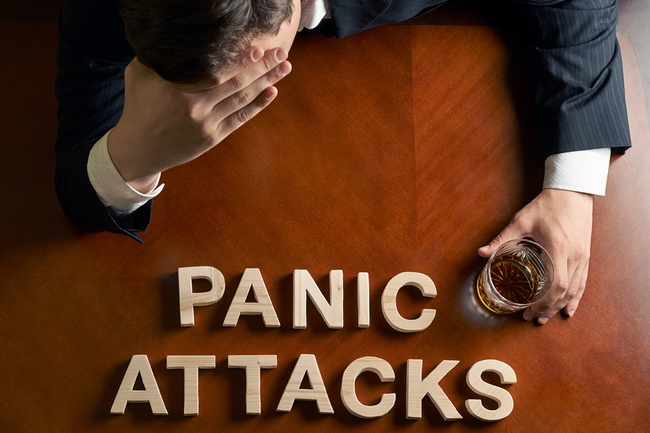- Make It Yourself Lavender Heart-Shaped Bath Bombs!
- 20 Things You Never Knew About “Down There”
- 12 Best Foods For Those Suffering From Arthritis Pain
- 12 Personal Hygiene Mistakes Almost Everyone Makes (Mom Never Told You About #4!)
- 15 Medicinal Plants And Herbs From The Cherokee People
- 12 Mind-Blowing Benefits Of Drinking Coconut Water During Pregnancy
- 12 Outstanding Winter Foods That Won’t Fatten You Up Like A Christmas Turkey
12 Creative Ways To Deal With Panic Attacks Without Medication

Photo credit: bigstock.com
If you or someone you love suffers from panic attacks, you know how devastating they can be. Some people describe a panic attack as having feelings of intense fear when no real threat exists.
Panic attacks can start without warning and last for hours; other times they only last a few minutes. When attacks happen over and over, they can cause you to start avoiding certain situations, people, or places where they tend to occur, even if there is no real connection between the panic attack and the location or person.
Besides feeling terrified, panic attacks can bring on real physical symptoms such as sweating, trembling, chest pain, shortness of breath or hyperventilation, nausea, numbness in the extremities, a rapid heartbeat, or even a choking or constricted feeling in the throat.
Many people describe panic attacks as feeling so much fear, combined with some of the symptoms above, that they believe they are having a heart attack, or they truly feel that they might die. Others say that they get a “dreamy” feeling about their panic attacks, as if they are not real or as if they were detached from the whole thing.
Although the exact cause of panic attacks is not fully understood, most scientists feel that there might be a genetic component that kicks in when extreme stress occurs. Additional factors that can increase your risk of developing panic attacks include experiencing a traumatic event, the death of a loved one, pregnancy, or a history of child abuse.
If you suffer from frequent panic attacks, it is important to see your doctor for proper diagnosis. Left untreated, panic attacks rarely get better; they only grow in frequency and intensity. This will take its toll on both your physical and mental health.
For mild or infrequent panic attacks, there are many simple techniques that can help you control them and help you feel better.
Keep reading for the top 12 ways that can help you deal with panic attacks.
Continue to Page 2
































